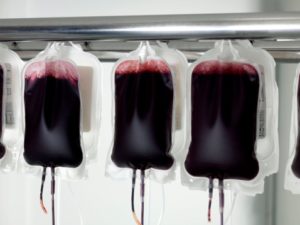Numerous studies have examined whether storage time affects the safety and quality of red blood cells (RBCs), but few studies have taken into account the collection and processing methods which may confound these results. In order to investigate differences in collection and processing methods, Almizraq and colleagues recently collected blood from donors using 4 different methods (n=8 per method): (1) whole blood which was leukoreduced; (2) RBCs separated from whole blood by centrifugation and then leukoreduced; (3) RBCs collected using apheresis; and (4) whole blood with plasma extracted by centrifugation. Using an in vitro transfusion model, the cytokine profile of monocytes exposed to the 4 different types of blood product were then measured at days 5 and 42. While immunomodulatory effects were largely independent of storage time, the cytokine profile of the monocytes differed based on the collection and processing method. The RBCs collected via apheresis were immunosuppressive, while whole blood that was leukoreduced was inflammatory since the monocytes produced more interleukin-8. The researchers also found the number and size of extracellular vesicles to differ based on the collection and processing method used; monocytes exposed to RBCs which were leukoreduced had fewer extracellular vesicles. Further research is warranted in order to determine if blood collection and processing methods affect clinical outcomes after transfusion.
Reference:

